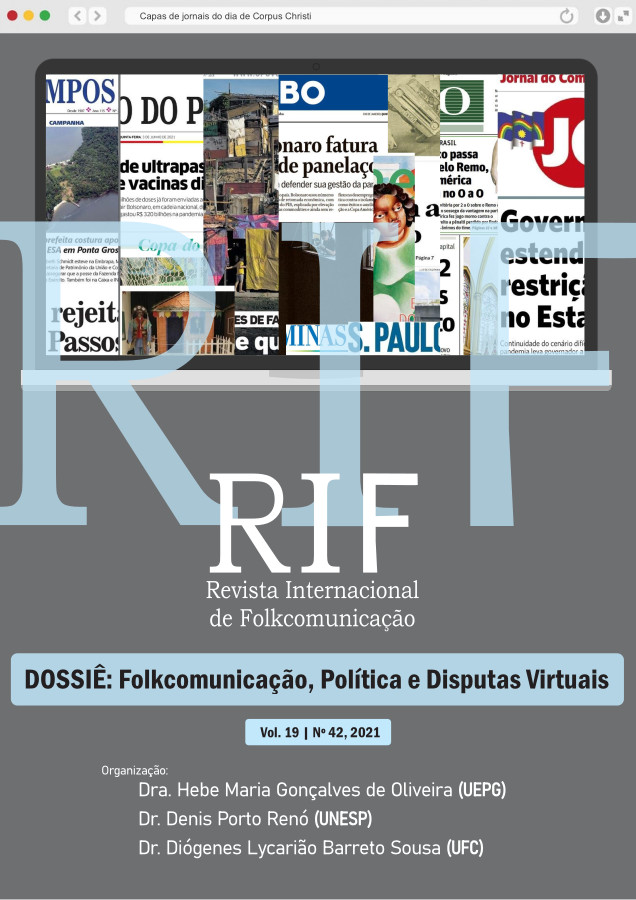The ex-votos as media in the transmission and in the preservation of social memory
DOI:
https://doi.org/10.5212/RIF.v.19.i42.0011Abstract
This article, of a theoretical nature, based on a bibliographical research, grounded on the studies in Folkcommunication, with the theories of Luiz Beltrão, and on the notion of religious cultural memory, with the emphasis defended by Jan Assmann, puts attention to the communicative character of the religious memory that encompasses the articulation of lived experiences and transmitted learning. The ex-votos are highlighted in the study, a common practice of various religious groups, of thanks for a divine grace achieved, interpreted here as vehicles of transmission and preservation of the memory of a locality and an time. In the methodological course, an application is elaborated, through the presentation of the extension of the typologies used in the studies of Folkcommunication, proposed in a doctoral dissertation defended by one of the authors of this study, as the indication of possible forms of transmission and preservation of social memory in each type of ex-votos. Religious cultural memory; Folkcommunication; Ex-votos.
Downloads
Additional Files
Published
How to Cite
Issue
Section
License

Este obra está licenciado com uma Licença Creative Commons Atribuição 4.0 Internacional.
Os autores são responsáveis, em qualquer que seja o formato do texto, pelas opiniões expressas ou indiretas presentes em seus respectivos trabalhos, não endossáveis pelo Conselho Editorial e pelos editores da Revista, bem como pela autenticidade do trabalho. Ao publicar trabalhos na Revista Internacional de Folkcomunicação, os autores cedem automaticamente os direitos autorais à publicação para veiculação das produções acadêmicas, sem ônus para a Revista. Os autores detêm os direitos autorais do texto para o caso de publicações posteriores e concedem à Revista Internacional de Folkcomunicação o direito de primeira publicação, com o trabalho simultaneamente licenciado sob a Creative Commons Attribution License, que permite o compartilhamento do trabalho com reconhecimento da autoria e publicação inicial nesta Revista. Por serem publicados em revista de acesso livre, os artigos são de uso gratuito, com atribuições próprias, em atividades educacionais e não-comerciais, sendo permitida a publicação simultânea em repositórios institucionais.































